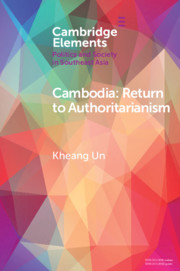Refine search
Actions for selected content:
1 results

Cambodia
- Return to Authoritarianism
-
- Published online:
- 01 February 2019
- Print publication:
- 07 February 2019
-
- Element
- Export citation
